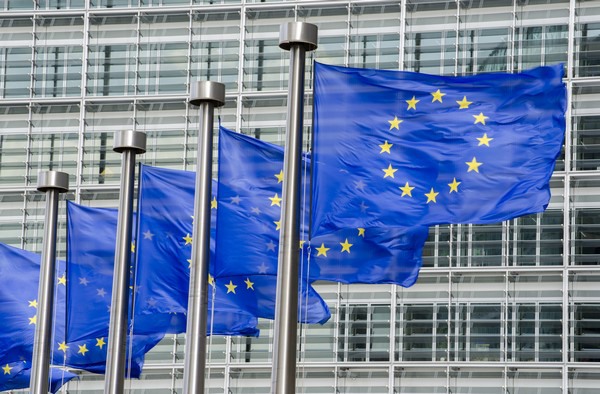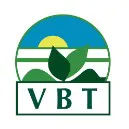The European elections are just around the corner. On Thursday, June 6 (and in Belgium, June 9), everyone is called to the polls. Often, these are somewhat pushed to the background at a micro level, but as described in many campaign plans, this time ‘Europe is at a turning point’. “The challenges we face are enormous,” states Luc Vanoirbeek, secretary of the VBT. “It is crucial that we, as an organized Europe, confront these challenges head-on.”
There are a number of key issues this election, Luc explains. “Factors that we all face. Consider the geopolitical tensions. Thoughts immediately turn to the invasion of Ukraine, which will undoubtedly shape our future, but it goes much further than that. What happens to our relations with the US if Donald Trump returns to power. China is becoming an increasingly strong player, already surpassing both the US and Europe. The entire world order is ready to change completely. This creates great uncertainty. How will we organize ourselves in response? Think of defense. We’ve been lulled into complacency, thinking ‘everyone would remain friendly’, but then some leaders had different agendas.”
“We also have a tough nut to crack with climatic problems. Look at Bavaria, but also Italy, Belgium, the Netherlands, Spain, and Greece are bursting with problems,” Luc continues. “Or the wave of innovation. In Leuven, we have IMEC, and in the Netherlands, there’s ASML. Chip manufacturers will continue to grow rapidly. To keep up with this wave of innovation, we’ll need to stand tall, leading us to a crucial point: financing. Most member states have huge budget deficits due to the aftermath of the corona and energy crises.”
“Then comes decision-making,” he continues. “Because we’ll have to figure out how to organize this. If you see the problems we’re having with Orban from Hungary, the Slovak government, or the previous Polish one. Moreover, there’s a strong discourse about returning to a national level, which doesn’t make decision-making any easier. I don’t think it’s a step in the right direction, because the problems we face are global issues, which we as the EU need to address to keep up with the times.”
European Agricultural Policy
Indeed, national elections have a lot of influence on the general trend in Europe. In the Netherlands, Geert Wilders emerged as the largest. In Germany, France, and Italy, right-wing parties are also growing. “This also extends to the agricultural sector. Right often means quickly pulling towards one’s own. A certain uncertainty, with terms like ‘our people first’ quickly coming to mind. However, I believe we need to tackle it as Europe, because there are many concerns about agricultural policy. It’s under a lot of pressure. Today, there are farmer protests in Brussels again, and it’s visible everywhere in the streets.”
“If you ask me, there are 3 key points. First is European food sovereignty, but we must find a balance with sustainability. We mustn’t make the same mistakes as with energy supply. What’s important to me, and should become a discourse, is that we go back to basics. Sustainability is simply an important issue. There needs to be a lot of food production, which immediately puts you at odds with environment and sustainability due to intensive cultivation. Producing enough food ourselves is crucial. We need to invest in that. There’s a lot of reaction to the Green Deal, but if we’re serious about looking to the future, we also need to focus on sustainability. It’s about finding a balance. Sustainability isn’t just green, but also economic sustainability. Keeping it affordable for consumers, but also ensuring a fair price for the farmer.”
Realistic “To achieve this, it’s important to stay realistic. It’s pointless to say, like in the old Soviet Union, that we’re going to produce a lot without a clear plan. You have to be realistic, and crucial here are alternatives for crop protection. This requires time and money, but also investment from entrepreneurs and, for example, experimental gardens. It also has to remain affordable. There are many differences in purchasing power in Europe, but then it’s important not to unnecessarily stretch the price. So, you have to intensify cultivation, but without completely throwing other things out the window. That’s a huge challenge.”
“To achieve this, it’s important to stay realistic. It’s pointless to say, like in the old Soviet Union, that we’re going to produce a lot without a clear plan. You have to be realistic, and crucial here are alternatives for crop protection. This requires time and money, but also investment from entrepreneurs and, for example, experimental gardens. It also has to remain affordable. There are many differences in purchasing power in Europe, but then it’s important not to unnecessarily stretch the price. So, you have to intensify cultivation, but without completely throwing other things out the window. That’s a huge challenge.”
“Finally, it has to be fair. It’s pointless to position Europe as the prettiest and smartest in the class if it prices us out of the market. If we look at the surrounding countries, we’ll see that trade does not decrease. Therefore, we must find a way to enforce the rules imposed on one country also on the import product. These are the main musings for the upcoming elections. I could go on endlessly, because nothing is certain. Suppose the war in Ukraine ends and they seek rapprochement with the EU. Wouldn’t that be a tough nut to crack for our grain farmers? These are all things to consider and that are at stake during the elections on June 6 and 9. It is therefore of great importance that everyone exercises their right to vote to face the challenges of the coming years.”
For more information:  Luc Vanoirbeek
Luc Vanoirbeek
Association of Belgian Horticultural Cooperatives (VBT)
[email protected]
www.vbt.eu

